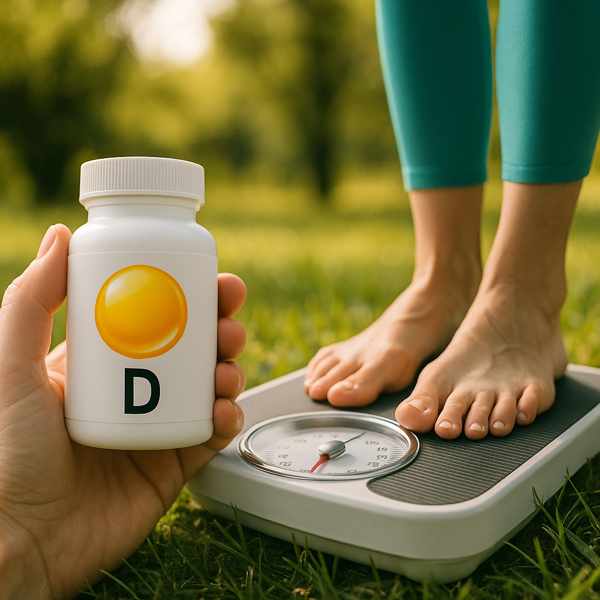
Vitamin D has gained a lot of attention not only for its role in bone health and immunity but also for its potential connection to weight management.
Let’s explore the science, potential benefits, and how vitamin D may — or may not — affect your weight loss journey.
Vitamin D Basics
Vitamin D is a fat-soluble vitamin that the body produces when the skin is exposed to sunlight.
It helps with:
- Important for strong bones and teeth
- Immune system regulation
- Linked to serotonin and depression
- Muscle function and energy
Is There a Connection Between Vitamin D and Weight?
But the big question remains: does supplementing with vitamin D promote weight loss?
Some research suggests:
- It could help regulate how the body stores fat
- Chronic inflammation is tied to weight gain
- Improved mood and energy may boost activity levels
- Can help manage blood sugar and appetite
What Experts Have Found
- A study in 2014 found that overweight women who took vitamin D lost more fat than those who didn’t supplement.
- Another review showed vitamin D helped improve metabolic markers related to weight control.
- Some trials show no major impact on weight loss unless deficiency was corrected first.
While promising, the evidence is not yet strong enough to say vitamin D alone does vitamin d help with weight gain causes weight loss.
When Vitamin D Can Help with Fat Loss
People most likely to benefit from vitamin D supplementation include:
- Those who are deficient or low in vitamin D
- Individuals with obesity or metabolic syndrome
- People with mood or energy issues
- Indoor lifestyles can contribute to deficiency
Boosting Vitamin D Levels the Right Way
Ways to get more vitamin D:
- Sun exposure
- Foods like salmon, egg yolks, fortified milk
- Vitamin D3 supplements
Tips:
- Don’t overdo it
- Check with a doctor before starting
- Combine with calcium and magnesium
Set Realistic Expectations
It may support fat loss indirectly, but it works best when combined with healthy habits.
For best results:
- Focus on whole foods and nutrients
- Exercise improves fat metabolism and energy levels
- Get good sleep
- Reduce stress
Conclusion
If you’re deficient, correcting your levels could lead to better energy, mood, and metabolic function.
Combine smart nutrition, movement, and lifestyle habits to reach your goals — with vitamin D as a helpful ally.